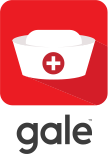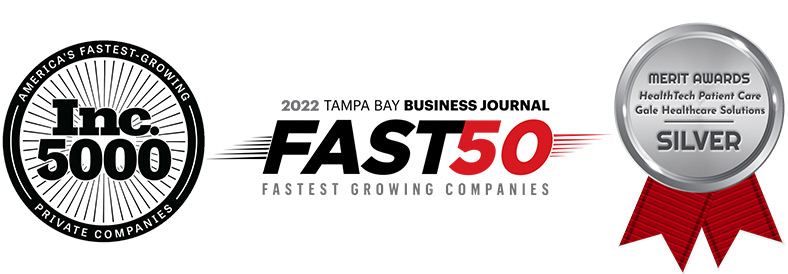Statement | April 19, 2023
Tony Braswell, President and Founder | Gale Healthcare
Recently, I was interviewed by the New York Times about how on-demand apps are changing the workforce, including in the temporary healthcare staffing world. It was a chance to share what our industry is like and to highlight some of the issues that come with this new way to work.
Brenda Handy, a Gale nurse, was also interviewed, sharing her vast experience from working as a full-time employee, and also working as a temporary nurse with me when I was running a small staffing company in St. Pete, Florida, and now as one of 60,000 plus clinicians who work with Gale nationally.
Like Brenda, I’ve spent my entire career in healthcare. I’m passionate about serving patients, about providing relief to stressed out facility managers, and about supporting hard-working nurses and nurse aides. It’s why we created an app that gives caregivers more work options, why we focus on getting them paid as quickly as possible, and why we hire our clinicians as W2 employees – so they can enjoy the flexibility of app-based work, but still get traditional employer-paid benefits, like overtime, workers compensation coverage, and health insurance options.
Excerpts from this article are provided below. It ends on a note that suggests 1099 firms could prevail over W2 firms because of their lower operating costs. As someone who cares very much about what’s best for our industry, I’m hopeful a new Department of Labor regulation on worker misclassification that is coming soon, along with a growing number of court cases that address worker misclassification, will make it harder for 1099 companies to avoid giving nurses what they are due.
Nurses and nurse aides work hard. App-based platforms can help nursing staff set their own schedule – without sacrificing the work-related protections they deserve.
From the New York Times
When Your Boss is an App
April 13, 2023
“Brenda Handy started doing temp work nearly 40 years ago. Back then, landing jobs took time and effort, even for a licensed practical nurse. In the 1990s she lived in Tampa, Fla., with her three children, but got her work through a man named Tony Braswell, who had his offices a half-hour away, in St. Petersburg. Braswell would call nurses with the details of their next jobs. Handy would learn her assignment and drive the family van an hour south to Sarasota, or maybe 40 minutes east to Lakeland, to reach one of the care facilities that contracted with Braswell’s company. She was one of his most reliable nurses, and she liked working with him. He knew her schedule and the jobs she preferred; he was the kind of hands-on guy who would, in a pinch, drive out in his own car to give a nurse a ride. Still, the whole process could be time-consuming. After a week’s worth of jobs was complete, Handy would drive to Braswell’s office in St. Petersburg — usually getting there before he’d even shown up and unlocked the door — and wait in the parking lot with a handful of other nurses for him to arrive and cut her a check.
Handy still works for Braswell, but the days of phone calls and lingering outside the office are gone. In 2016, Braswell realized that he could not scale his business up without some degree of automation. So he created a software platform he called Gale Healthcare, in honor of Florence Nightingale. Handy can now log in and book work within seconds of a shift becoming available. “It’s like — you’re at the grocery store, you see something you like, you pick that shift,” she said. “They come up 24/7. You have to be quick on the draw.”
“That is how you know I’ve been in this a long time,” she told me recently from her kitchen in St. Petersburg. “Nobody uses paper anymore. Nobody gives you checks.” Everything, she said, is now on her phone. “I’m on the app every day,” she said, as dinner sizzled audibly in the background. “I’m on the app when we’re talking right now.”
Handy has a full-time nursing job and works these additional shifts on the side. When we first spoke, she was also spending her mornings studying to become a registered nurse. She has an overarching philosophy of working both smart and hard — a philosophy about life stages, efficiency and making the best use of the tools available. She is not an entrepreneur, exactly, but she speaks a language that unifies personal and career growth. “So, I’m going to tell you how I do this,” she said. “On the days that I have to be in school, we go from 8 to 2. Then you get out of school. Then you can pick and choose if you want to work 3 to 11 or 11 to 7. Then I do a full-time on the weekend. I do 12 hours on Saturday and Sunday.” At 59, she spends most of her days caring for elderly and infirm patients, watching the details of their expressions, how they hold themselves, the little signifiers of how they are feeling. Then, in her off hours, she keeps an eye on her phone.”
Braswell is currently speaking against the practice of classifying health care workers as independent contractors. Doing so, he argues, will further worsen a nursing shortage and leave the elderly population neglected and underserved. The industry, he says, needs flexibility and stability at the same time. Nurses shouldn’t be required to continually negotiate their jobs or act as independent businesses; they are overworked and vulnerable enough. “We can’t lose nurses,” he says. When Gale did a small survey of its nurses last year, it found that 65 percent were working per diem rather than in full-time jobs — but, according to Braswell, “they want to work full time. They just want to work on their own terms.”
Gale Healthcare is used by more than 60,000 nurses, and Braswell now provides labor to facilities across the country. It was, in the end, the online platform — the structure built by the gig economy — that enabled him to scale up, both expanding his reach and allowing him to offer perks like paying nurses within minutes after they complete a shift. (“I want people to be able to stop for groceries on the way home,” he says.) He wants, he says, to provide benefits. He pays into workers’ compensation for his nurses and is doing his best to offer health insurance. But without a government mandate requiring that such benefits be provided, he says, it may be difficult for Gale Healthcare to stay competitive with other platforms; the usual race to the bottom, in which platforms work to minimize every cost associated with labor, could prevail.”
You can access the full article here.



